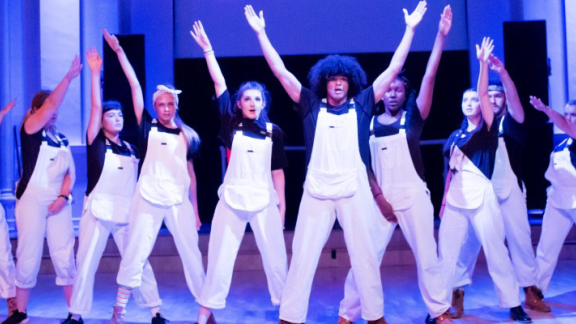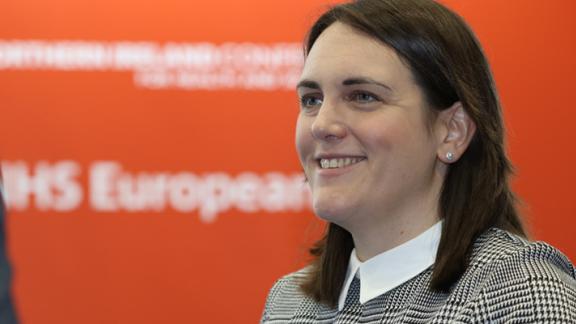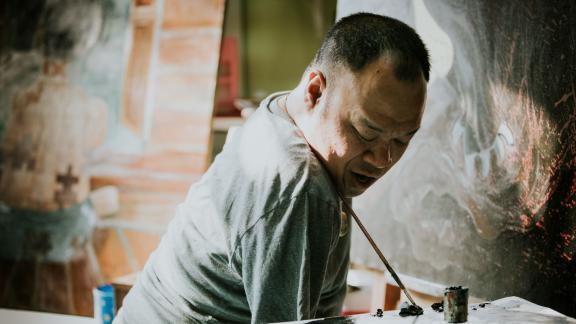Why a focus on arts and health should be a fundamental part of every NHS strategy

Integrating arts and culture into NHS plans will both save and change lives, write Lord Haworth and Rob Webster.
“Creative Minds not only saved my life, it gave me a life”. I first heard Debs Taylor, a peer project development worker, tell me this at a conference on social prescribing. In one sentence, she captured why a focus on the arts and health should be a fundamental part of every NHS plan and strategy.
We are all beguiled by individual stories, but the call for evidence and scalability is never far behind. Fortunately, if you are a chief executive of an NHS trust, you will shortly receive an important report on arts and health, with a letter from me and Lord Howarth of Newport, the co-chair of the All-Party Parliamentary Group on Arts, Health and Wellbeing.
I strongly recommend that colleagues study this report and think seriously about its implications – you can download Creative Health: The Arts for Health and Wellbeing on the all-party group’s website. It shows that the arts can offer significant support in the pursuit of NHS strategies.
The report is the outcome of a two-year inquiry by the group. Its three key messages are:
- The arts can help keep us well, aid our recovery and support longer lives better lived.
- The arts can help meet major challenges facing health and social care: ageing, long-term conditions, loneliness and mental health.
- The arts can help save money in the health service and social care.
The inquiry involved over 300 people from across the country contributing to 16 roundtables in Parliament on a wide range of subjects. Several NHS trusts submitted evidence. My team from South West Yorkshire Partnership NHS Foundation Trust spoke at a roundtable about our Creative Minds programme. We are very proud of it.
Since its launch in 2011, it has delivered over 250 creative projects in partnership with over 100 community organisations and has benefited more than 20,000 people. We were delighted when Creative Minds received the 2014 Health Service Journal Award for Compassionate Care. We have worked with organisations as diverse as Hoot Creative Arts, Yorkshire Sculpture Park and Phoenix FM.
The report provides impressive evidence and personal testaments. I was struck by the story of Russell, who participated in an arts on prescription programme, following a stroke and the collapse of his business and personal life. He is now painting regularly and says: “I find that as long as I can paint I can cope. It doesn’t mean that depression has gone but I no longer have to keep going back to my GP for anti-depressants.” The report demonstrates that arts interventions can reduce demand for GP and hospital appointments and medication.
However, there are barriers to progress. Arts in health work is often short term and not available consistently across the country. The report makes a powerful case for arts and culture to contribute to the wider health and social care agenda, helping people to live healthier lives.
The ten recommendations in Creative health, if implemented, will clearly support the aims set out in the NHS Five Year Forward View, for example around health inequalities, care variation and finances.
The publication of this blog post coincides with a meeting in parliament on how to carry forward recommendations three and four of the report:
- We recommend that, at board or strategic level, in NHS England, Public Health England and each clinical commissioning group, NHS trust, local authority and health and wellbeing board, an individual is designated to take responsibility for the pursuit of institutional policy for arts, health and wellbeing.
- We recommend that those responsible for NHS new models of care and sustainability and transformation partnerships ensure that arts and cultural organisations are involved in the delivery of health and wellbeing at regional and local level.
Lord Howarth, in his introduction to the report, calls for: “An informed and open-minded willingness to accept that the arts can make a significant contribution to addressing a number of the pressing issues faced by our health and social care systems.”
He rightly highlights the need for culture change at different levels in the system. We need to raise awareness of the benefits, encourage innovative commissioning and find ways to enable more partnerships to develop and be sustained.
You may be aware of excellent arts in health work already being delivered in your part of the country or wish to find out about local opportunities for partnership working. Sustainability and transformation partnerships offer an opportunity for us to work more effectively with local arts and cultural providers on shared goals for our local population. Integrating arts and culture into our strategies for health and social care will save lives and change lives.
Lord Howarth of Newport CBE is co-chair of the All-Party Parliamentary Group on Arts, Health and Wellbeing. Rob Webster is chief executive of South West Yorkshire Partnership NHS Foundation Trust and leads the West Yorkshire Sustainability and Transformation Partnership. Follow him and the trust on Twitter: @NHS_RobW @allofusinmind



